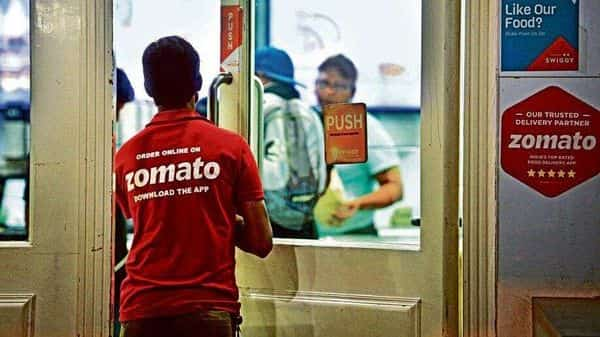Food, logistics startups witness funding boom

NEW DELHI :
Food and logistics startups raised significant funding last year as the pandemic spurred a surge in demand for online delivery of fresh and ready-to-eat food and quick logistics service.
Funding in food tech startups such as Licious, FreshtoHome, Zomato and Swiggy more than doubled to $1.3 billion in 2020 from $619 million in 2019, according to Venture Intelligence data. Logistics startups like Delhivery and Ecom Express raised $965 million last year. Though lower than the $1.1 billion in 2019, they are expected to continue to draw investors.
Edtech mopped up $2.1 billion, the highest of all sectors, against $426 million in 2019, largely led by Byju’s, which raised over $1.25 billion.
However, e-commerce, which typically bags the bulk of funding, saw a dip in 2020, raising only $779 million—less than a fourth of the $3.3 billion raised in 2019. This, in spite of the fact that the sector became highly competitive with aggressive strategies from giants such as Amazon, Flipkart, Myntra and Snapdeal.
“While the adoption of e-commerce is on the rise, this is becoming an increasingly competitive space with many ‘me-too’ companies. Companies in the space will need to spend aggressively to acquire customers and differentiate themselves from other players in the space,” said Ankur Pahwa, partner and national leader, e-commerce and consumer internet, EY India.
Food delivery platforms, too, witnessed a surge in orders as people stayed indoors amid covid-led restrictions. Gurugram-based food tech unicorn Zomato raised $660 million at a valuation of $3.9 billion as the firm set its sights on an initial share sale this year. FreshToHome, a Bengaluru-based online fresh fish and meat retailer, which raised $121 million led by Investment Corporation of Dubai, is adopting digital payments, digital feedback and technology to communicate with their customers in daily operations.
According to EY’s Pahwa, the food segment is expected to follow the high growth runway and attract capital as companies continue to expand their PIN code reach and more restaurants, cloud kitchens and home cooks rely on the segment to reach customers.
Cloud kitchens, too, have big expansion plans this year. Rebel Foods, for instance, has already partnered with Sierra Nevada Restaurants to develop and operate approximately 250 Wendy’s cloud kitchens pan-India. The move comes at a time the pandemic has disrupted the restaurant business globally with diners reluctant to return to food joints operating under physical distancing protocols. This has led to a surge in takeaways and online food ordering through aggregators and restaurant websites driving firms to enhance their online presence via cloud kitchens.
“Our focus will remain on being a technology-first food brand, opening our Rebel Operating System, a combination of culinary and technology that has given us many year’s lead worldwide to execute our model and provide a platform to scale brands nationally and globally,” said Raghav Joshi, co-founder and CEO, India business unit, Rebel Foods.
Travel restrictions during the lockdown also forced e-commerce platforms to rebuild their supply chains to include more products and expand more into tier-3 cities and beyond.
“As the legacy supply chain models failed to provide supply at transparent rates, the increased demand for both non-essential and essentials items was catered by tech-aided logistics players giving rise to multiple startups within logistics providing services such as fleet visibility, route optimization and return logistics,” says Ankur Bansal, co-founder and director, BlackSoil, a venture debt fund.
Published at Sun, 03 Jan 2021 14:07:13 +0000





Comments
Loading…